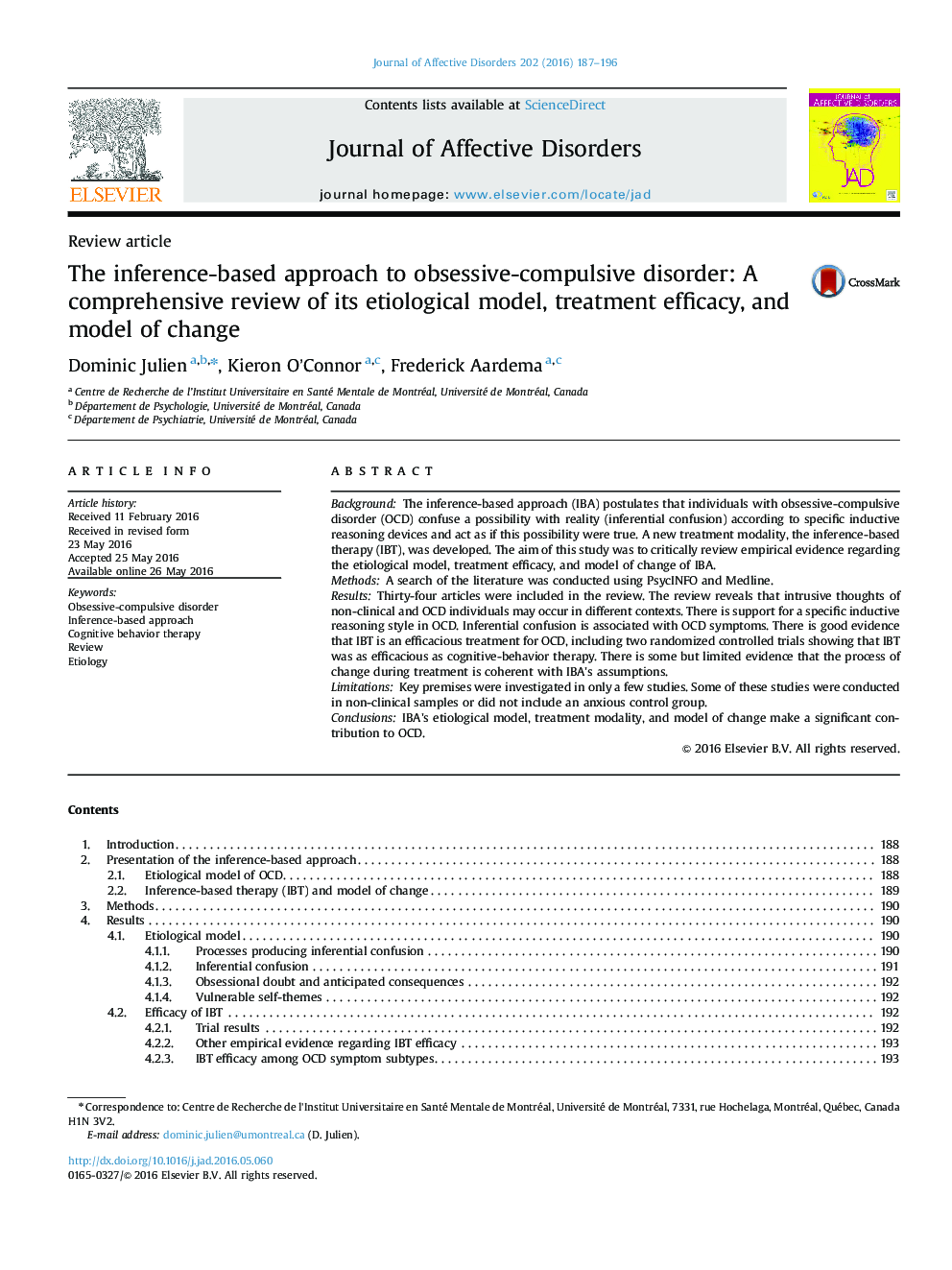| کد مقاله | کد نشریه | سال انتشار | مقاله انگلیسی | نسخه تمام متن |
|---|---|---|---|---|
| 6229958 | 1608123 | 2016 | 10 صفحه PDF | دانلود رایگان |
- The article reviews empirical evidence on inference-based model and therapy.
- Obsessions may not intrude but result from an internal narrative.
- Inferential confusion is associated with OCD symptoms.
- There is good evidence that the treatment is efficacious with OCD.
- There is some evidence that process of change is coherent with assumptions.
BackgroundThe inference-based approach (IBA) postulates that individuals with obsessive-compulsive disorder (OCD) confuse a possibility with reality (inferential confusion) according to specific inductive reasoning devices and act as if this possibility were true. A new treatment modality, the inference-based therapy (IBT), was developed. The aim of this study was to critically review empirical evidence regarding the etiological model, treatment efficacy, and model of change of IBA.MethodsA search of the literature was conducted using PsycINFO and Medline.ResultsThirty-four articles were included in the review. The review reveals that intrusive thoughts of non-clinical and OCD individuals may occur in different contexts. There is support for a specific inductive reasoning style in OCD. Inferential confusion is associated with OCD symptoms. There is good evidence that IBT is an efficacious treatment for OCD, including two randomized controlled trials showing that IBT was as efficacious as cognitive-behavior therapy. There is some but limited evidence that the process of change during treatment is coherent with IBA's assumptions.LimitationsKey premises were investigated in only a few studies. Some of these studies were conducted in non-clinical samples or did not include an anxious control group.ConclusionsIBA's etiological model, treatment modality, and model of change make a significant contribution to OCD.
Journal: Journal of Affective Disorders - Volume 202, 15 September 2016, Pages 187-196
